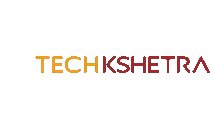The Benefits of Using Quizzes for Self-Assessment
Published: Nov 13, 2024

Self-assessment quizzes have become a staple in modern learning strategies, used by students,
educators, and professionals alike. They offer a proactive approach to measuring understanding,
promoting self-awareness, and identifying areas for improvement. In today’s knowledge-driven
environment, where continuous learning is vital, quizzes provide an engaging and effective way to
foster growth. Here’s a detailed look at the many benefits of using quizzes for self-assessment.
Instant Feedback and Self-Awareness
Quizzes provide immediate insights into how well individuals understand a topic. This instant feedback helps learners become more self-aware, allowing them to reflect on their strengths and weaknesses without the need for formal evaluations. Self-awareness cultivated through quizzes builds confidence as individuals recognize what they know, and it highlights specific areas for improvement.
Promotes Active Recall and Long-Term Retention
Actively recalling information is a critical aspect of effective learning. Self-assessment quizzes require individuals to retrieve and apply what they’ve learned, strengthening neural pathways and reinforcing memory. Studies show that frequent testing, even in low-stakes settings, significantly improves retention compared to passive study methods. Over time, the consistent practice of recalling information helps individuals retain knowledge better and for longer periods.
Pinpoints Knowledge Gaps and Learning Opportunities
One of the key advantages of quizzes is their ability to reveal knowledge gaps. By identifying these gaps early, individuals can take targeted action to improve. For example, a professional preparing for a certification exam might realize through a quiz that they need more practice in a particular module, allowing them to focus their study efforts accordingly. This targeted learning approach ensures time and energy are spent effectively, maximizing productivity.
Boosts Engagement and Motivation
Quizzes add an interactive element to learning that keeps individuals engaged. Unlike passive reading or note-taking, quizzes provide measurable goals and clear milestones that make learning enjoyable. Many quizzes incorporate gamification elements, such as progress tracking and achievement badges, which provide additional motivation. As individuals see their scores improve, they’re encouraged to keep going, creating a positive cycle of motivation and achievement.
Reduces Test Anxiety and Builds Exam Confidence
Regular self-assessment can be an effective way to reduce anxiety in high-stakes testing situations. Practicing with quizzes familiarizes individuals with the format, type of questions, and time management required for exams or evaluations. Over time, this practice can help individuals approach formal tests with a calm, focused mindset, knowing they’ve prepared thoroughly and tested themselves repeatedly.
Encourages Goal Setting and Continuous Improvement
Quizzes make it easy to set achievable learning milestones. By using quizzes as checkpoints, individuals can track their progress, celebrate small wins, and set realistic goals for improvement. This approach not only promotes a growth mindset but also keeps individuals focused and goal-oriented. Tracking quiz results over time provides a clear picture of how much has been learned, creating a roadmap for continuous improvement.
Facilitates Personalized Learning
Self-assessment quizzes offer insights that help individuals create a more personalized learning plan. Based on quiz results, learners can identify which areas need more attention and find resources—whether additional courses, books, or tutorials—that cater specifically to those needs. This personalized approach to learning helps individuals advance more efficiently, as they’re able to focus on filling knowledge gaps rather than revisiting material they’ve already mastered.
Promotes Critical Thinking and Problem-Solving Skills
Many quizzes are designed not just to test knowledge but to encourage critical thinking and problem-solving. By tackling questions that require analysis, application, or synthesis of information, individuals can develop higher-order thinking skills that go beyond memorization. This practice helps learners become better at applying knowledge in real-world scenarios, an essential skill in any profession.
Encourages Regular Review and Spaced Repetition
Repetition is essential for long-term retention, and self-assessment quizzes provide an easy way to incorporate spaced repetition into learning. By regularly revisiting quiz questions, learners are exposed to the material at spaced intervals, strengthening memory and minimizing forgetting. This method is particularly useful for complex subjects or large volumes of information, as it helps individuals retain key concepts over extended periods.
Conclusion
Self-assessment quizzes offer an effective, engaging way to evaluate understanding, reinforce learning, and identify areas for growth. By promoting self-awareness, supporting goal setting, and making learning more interactive, quizzes empower individuals to take control of their education and professional development. For anyone committed to continuous learning and self-improvement, self-assessment quizzes provide a practical, accessible, and motivating path forward.
.png)




